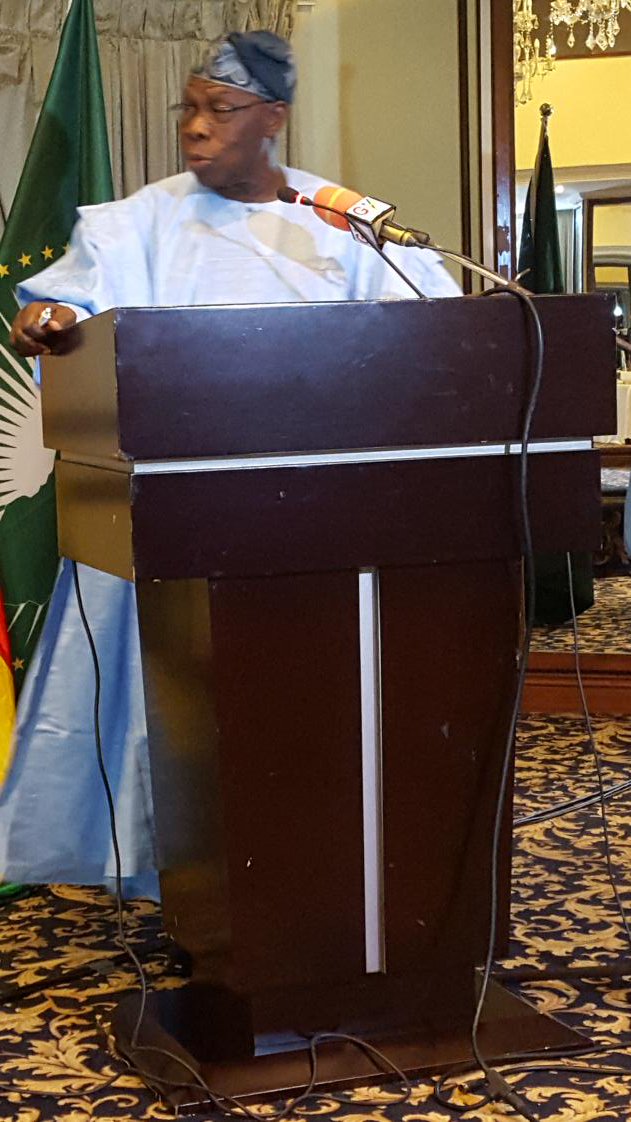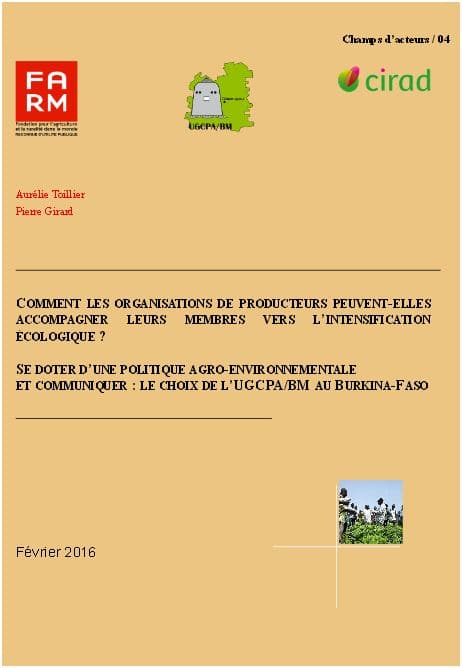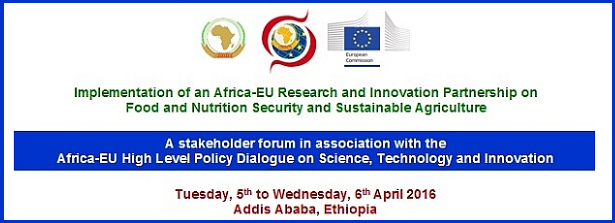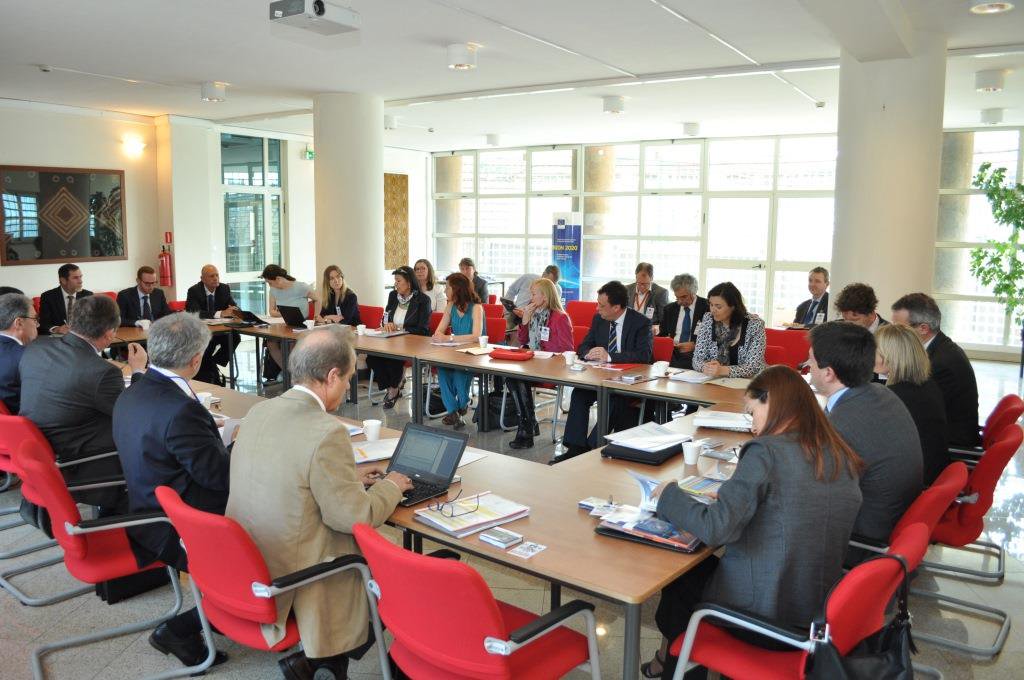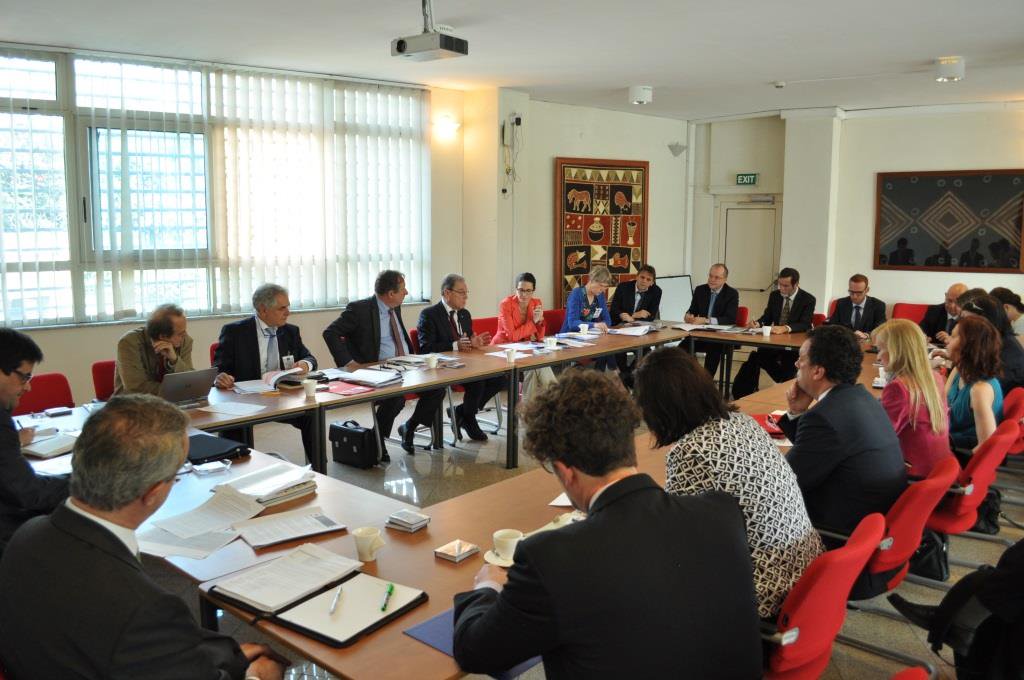12 April 2016. Accra, Ghana. Together with the African Unions’s Partnership for Aflatoxin Control in Africa (PACA), the Global Panel on Agriculture and Food Systems for Nutrition hosted a high-level roundtable meeting to launch the Panel’s new brief on food safety and to highlight the impact of aflatoxins on healthy diets and nutrition. This meeting was organised alongside the 12th Comprehensive African Agriculture Development Programme Partnership Platform meeting in Accra, Ghana.
In his opening remarks, H.E. John Kufuor, Former President of the Republic of Ghana, called for collective action to address the challenges presented by aflatoxins and contaminated foods. He emphasised the far-reaching consequences of unsafe foods on trade and livelihoods, particularly for the poor. He urged leaders to promote appropriate policies and incentives that would lead to the reduction of food-borne threats to nutrition and health.
Professor Sandy Thomas, Director of Global Panel on Agriculture and Food Systems for Nutrition launched the Panel’s new policy brief: "Assuring Safe Food Systems: Policy Options for a Healthier Food Supply". It stresses the importance of taking a systems approach to tackling the threats posed by contaminated food. Each year, around 420,000 people die as a result of unsafe food, the most vulnerable being children under 5. To ensure access for all to safe, healthy food, Professor Thomas highlighted the need for integrated policy action throughout the food chain, from production and processing to trade and consumption (to view Prof. Thomas’s presentation, please click here).
Professor Monty Jones, Minister of Agriculture, Forestry and Food Security of Sierra Leone, highlighted the importance of agriculture and nutrition for development in Africa, and called for African countries to lead by example to address this very critical issue.
Dr Janet Edeme, Acting Director, Rural Economy and Agriculture, African Union Commission moderated a rich discussion of the food safety challenge in Africa and its threat to the achievement of the Malabo Declaration. Engaged participants from the FAO, USAID, Kenya’s Ministry of Health, Tanzania’s Ministry of Agriculture Food Security and Cooperatives, and others affirmed their commitment to tackling food safety and aflatoxin threats through the use of smart policy interventions, community engagement and empowerment, new technology, and investment.
On behalf of H.E. Rhoda Peace Tumusiime, Commissioner for Rural Economy and Agriculture for the African Union Commission, Dr Edeme then closed the meeting. She applauded partners committed to research and investment in this area but called for strengthened commitments and further action to ensure that individuals, communities, and nations can achieve their full potential by guaranteeing the rights of all humans, especially children and women, to aflatoxin safe food.
Download a copy of the Global Panel’s new food safety brief
Photo gallery:
In his opening remarks, H.E. John Kufuor, Former President of the Republic of Ghana, called for collective action to address the challenges presented by aflatoxins and contaminated foods. He emphasised the far-reaching consequences of unsafe foods on trade and livelihoods, particularly for the poor. He urged leaders to promote appropriate policies and incentives that would lead to the reduction of food-borne threats to nutrition and health.
Professor Sandy Thomas, Director of Global Panel on Agriculture and Food Systems for Nutrition launched the Panel’s new policy brief: "Assuring Safe Food Systems: Policy Options for a Healthier Food Supply". It stresses the importance of taking a systems approach to tackling the threats posed by contaminated food. Each year, around 420,000 people die as a result of unsafe food, the most vulnerable being children under 5. To ensure access for all to safe, healthy food, Professor Thomas highlighted the need for integrated policy action throughout the food chain, from production and processing to trade and consumption (to view Prof. Thomas’s presentation, please click here).
Professor Monty Jones, Minister of Agriculture, Forestry and Food Security of Sierra Leone, highlighted the importance of agriculture and nutrition for development in Africa, and called for African countries to lead by example to address this very critical issue.
Dr Janet Edeme, Acting Director, Rural Economy and Agriculture, African Union Commission moderated a rich discussion of the food safety challenge in Africa and its threat to the achievement of the Malabo Declaration. Engaged participants from the FAO, USAID, Kenya’s Ministry of Health, Tanzania’s Ministry of Agriculture Food Security and Cooperatives, and others affirmed their commitment to tackling food safety and aflatoxin threats through the use of smart policy interventions, community engagement and empowerment, new technology, and investment.
On behalf of H.E. Rhoda Peace Tumusiime, Commissioner for Rural Economy and Agriculture for the African Union Commission, Dr Edeme then closed the meeting. She applauded partners committed to research and investment in this area but called for strengthened commitments and further action to ensure that individuals, communities, and nations can achieve their full potential by guaranteeing the rights of all humans, especially children and women, to aflatoxin safe food.
Download a copy of the Global Panel’s new food safety brief
Photo gallery:


